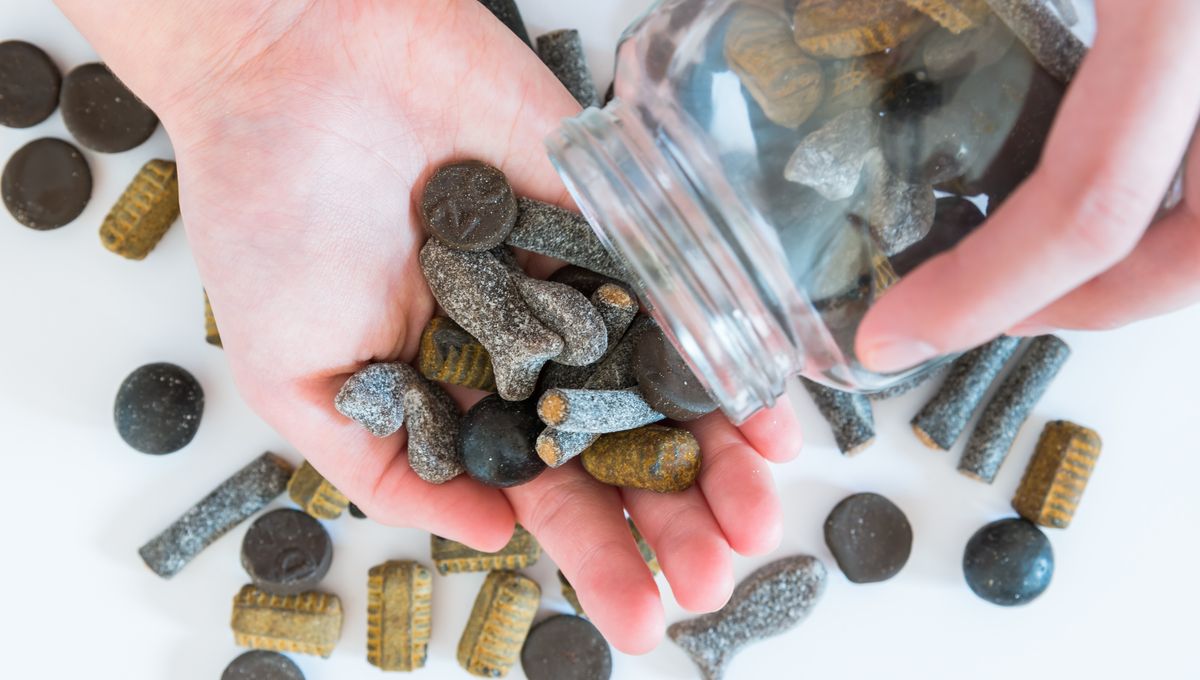
Sweet, savory, sour, bitter, and umami are the five classic tastes our tongues are trained to detect. But lurking on the edge of this flavorful lineup is a lesser-known sensation: ammonium chloride. Best known as the tongue-tingling punch behind salty licorice, this sharp taste might just deserve a spot among the basic five.
Taste is a type of chemical sensing picked up by special receptors in the mouth. Each of the five basic tastes is recognized by its own specific receptor or set of receptors. Scientists have known for decades that the tongue responds to ammonium chloride, but research from USC Dornsife managed to pinpoint the receptors on the tongue that react to it.
Reporting their findings in the journal Nature Communications in 2023, the team explained that it’s all thanks to a protein, called OTOP1, that’s found within cell membranes and forms a channel for hydrogen ions moving into the cell.
To confirm their hypothesis, the team created lab-grown human cells that featured the OTOP1 protein and then exposed them to acid and ammonium chloride. They found that ammonium chloride activated the OTOP1 receptor just as effectively as acid. Further experiments showed the protein works similarly in humans, chickens, and even zebrafish, though how sensitive it is changes depending on the species.
Ammonium chloride is an aversive taste that most likely evolved to help avoid harmful substances, since ammonia is noxious to humans and other animals. However, it is evident that humans can learn to enjoy it, just like how we’ve acquired a taste for spicy or acidic foods. Ammonium chloride flavor is prominent in salt licorice candy, a peculiarly popular candy in Nordic countries, the Netherlands, and northern Germany.
“If you live in a Scandinavian country, you will be familiar with and may like this taste,” Emily Liman, a professor of biological sciences at USC Dornsife and study author, said in a statement.
“Ammonium is somewhat toxic,” she added, “so it makes sense we evolved taste mechanisms to detect it.”
OTOP1 is the same receptor that picks up on acidity, which we taste as a sour flavor like lemon juice or vinegar. However, it doesn’t appear to be merely an extension of acid-sensing, as it just uses the same hardware and relies on a different mechanism.
The idea of adding “new” sensations to our palate of basic tastes isn’t wholly novel. In 1908, Japanese chemist Kikunae Ikeda identified the chemical basis of a taste he named umami, the meaty or brothy flavor found in food like soy sauce, seaweed, anchovies, miso, fish sauce, Worcestershire sauce, and Marmite. The word can be loosely translated from Japanese as “pleasant savory taste,” although there’s no English word that truly captures its essence.
That said, ammonium chloride has competition for its place as the “sixth” basic taste. Prior to this study, many scientists have tried to make the case that “oleogustus” – Latin for “a taste for fat” – should be treated as its distinct basic taste.
Don’t confuse it with the delicious taste of fats we perceive when we eat things like creamy cheese or a juicy steak. Just like bitterness and ammonium chloride, oleogustus is meant to act as a deterrent. It’s the taste of oxidized oil that’s meant to signal to our mind, “stop eating that.” You’ll barely notice it in small concentrations, but a large dose will certainly put you off your fatty snack.
An earlier version of this article was published in October 2023.
Source Link: The Sixth Taste? Scientists Think They Found An Addition To Sweet, Sour, Salty, Bitter, And Umami